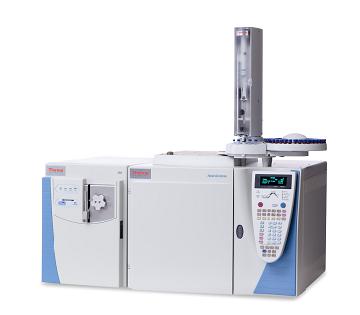Thermo Fisher Scientific Develops New GC-MS Method to Enable Compliance with Updated Federal Workplace Drug Testing Guidelines
 Thermo Fisher Scientific Inc., the world leader in serving science, introduces a new method for the confirmation of amphetamines in urine in accordance with recently updated United States Substance Abuse and Mental Health Services Administration (SAMHSA) Mandatory Guidelines for Federal Workplace Drug Testing Programs, implemented on the 1st May 2010. The recently launched Thermo Scientific ISQ single quadrupole gas chromatography-mass spectrometry (GC-MS) instrument can analyze a greater number of sympathomimetic amines in urine in line with these updated regulations. Further information on the new method is detailed in an application note, entitled "Confirmation and Quantitation of an Expanded Panel of Sympathomimetic Amines in Urine Using Single Quadrupole GC/MS", which is available to download via www.thermoscientific.com/isq1.
Thermo Fisher Scientific Inc., the world leader in serving science, introduces a new method for the confirmation of amphetamines in urine in accordance with recently updated United States Substance Abuse and Mental Health Services Administration (SAMHSA) Mandatory Guidelines for Federal Workplace Drug Testing Programs, implemented on the 1st May 2010. The recently launched Thermo Scientific ISQ single quadrupole gas chromatography-mass spectrometry (GC-MS) instrument can analyze a greater number of sympathomimetic amines in urine in line with these updated regulations. Further information on the new method is detailed in an application note, entitled "Confirmation and Quantitation of an Expanded Panel of Sympathomimetic Amines in Urine Using Single Quadrupole GC/MS", which is available to download via www.thermoscientific.com/isq1.
As part of the updated SAMHSA guidelines, multiple changes were made for the confirmation of amphetamine-class urine analysis. In addition to SAMHSA's previously published guidelines for amphetamine and methamphetamine, three amphetamine-analog drugs were added to the panel, including 3,4-methylenedioxyamphetamine (MDA), 3,4-methylenedioxymethamphetamine (MDMA) and 3,4-methylenedioxyethylamphetamine (MDEA). The confirmatory cutoff concentration level for the regulated amphetamines has also been lowered from 500 ng/mL to 250 ng/mL. To enable its customers to comply with these changes, Thermo Fisher has developed a method for the confirmation and quantification of the extended sympathomimetic amine panel in human urine using the ISQTM single quadrupole GC-MS. The method also complies with requirements outlined by the College of American Pathologists (CAP), the Society of Forensic Toxicologists (SOFT) and the European Workplace Drug Testing Society (EWDTS).
The new method offers broad linearity to cover a wide range of analyte concentrations, with R2 values of 0.9990 or higher for all analytes over the range of 25-25,000 ng/mL. It also offers excellent precision near the 250 ng/mL cutoff set out by SAMHSA and detection and quantification limits are set at 25 ng/mL, ensuring sensitive performance. Furthermore, the new method enables MDEA to elute at a retention time of less than five minutes, enabling increased productivity in high-throughput toxicology laboratories when confirming the five amphetamine-analog drugs now included in the revised SAMHSA guidelines.
The ISQ GC-MS is a highly robust and rugged system that provides high-throughput sample confirmatory analyses and 24/7 operation. The new ExtractaBriteTM removable ion source feature is designed to provide maximum uptime and productivity by extending the length of time between required source maintenance. As a result, the ISQ system offers simplified operation and maximum uptime for uninterrupted productivity across routine GC-MS applications including general forensics, forensic toxicology, food safety and environmental.
For more information on the new method and the Thermo Scientific ISQ single quadrupole GC-MS, please visit www.thermoscientific.com/isq or call +1 866 463 6522 .
Thermo Scientific is part of Thermo Fisher Scientific, the world leader in serving science.